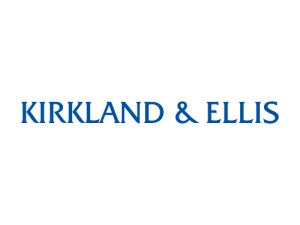Federal and provincial Ministers, the Honourable Catherine McKenna, the Honourable John Rustad, the Honourable Mary Polak, with Mayor John Helin of the Lax Kw'alaams Band and Harold Leighton, Chief Councillor of the Metlakatla First Nation, recently announced an Agreement on Environmental Monitoring of the proposed Pacific NorthWest LNG Project. This is the first Agreement of its kind between the Government of Canada, the Government of British Columbia, the Lax Kw'alaams Band and the Metlakatla First Nation.
The Government of Canada says it is committed to a renewed nation-to-nation relationship with Indigenous peoples based on recognition, rights, respect, co-operation, and partnership.
Through this historic agreement, First Nations will work directly with provincial and federal authorities as part of a committee to ensure the Pacific NorthWest LNG Project is developed in the most environmentally sustainable way possible.
The committee will enable enhanced environmental oversight of the Pacific NorthWest LNG Project and the active engagement of local First Nations. It will foster information-sharing and continuous environmental monitoring and oversight. It will also enable the Lax Kw'alaams Band and Metlakatla First Nation to provide input into the project's environmental management plans and follow-up programs.
The committee is the product of input and feedback from Indigenous peoples regarding their desire to play an active role in monitoring the project on an ongoing basis. It is an example of the successful application of the Interim Approach and Principles for environmental assessments, which include a commitment to restoring robust oversight and meaningful consultations and engagement with Indigenous peoples.
This cooperative agreement sets out the principles, structure, and roles and responsibilities of an Environmental Monitoring Committee for the Pacific NorthWest LNG Project, in British Columbia.
The Pacific NorthWest LNG Project received federal environmental assessment approval in September 2016, subject to over 190 legally-binding conditions to be fulfilled by the proponent throughout the life of the project. The Canadian Environmental Assessment Agency and BC Environmental Assessment Office remain responsible for ensuring ongoing compliance with their respective legally-binding conditions for the project.
The Honourable Catherine McKenna, Minister of Environment and Climate Change, Canada, said: "The idea to create this committee is based on input received from Indigenous peoples throughout the environmental assessment process to ensure protection of the environment through ongoing project monitoring and oversight. The committee encourages ongoing dialogue and collaboration with Indigenous peoples, which is at the core of our government's reconciliation commitment."
Mayor John Helin, Lax Kw'alaams Band, said: "We have always maintained the view that the environment is most important to us and with this agreement in place, it will help protect the fish, waters and lands in our traditional territory. Any development can only take place if the necessary environmental protections are in place and this is an important step in that direction."
Harold Leighton, Chief Councillor, Metlakatla First Nation, said: "Working together, we can ensure the safeguards are in place and LNG development respects the environmental values that are a priority for the Metlakatla First Nation."
The Honourable John Rustad, Minister of Aboriginal Relations and Reconciliation, British Colombia, said: "This agreement represents a stronger, collaborative way to safeguard the environment. Through this agreement, and working directly with the First Nations, we have put in place a management structure that will ensure the Pacific NorthWest LNG Project meets the highest possible environmental standards and adheres to both provincial and federal regulatory requirements."
The Honourable Mary Polak, Minister of Environment, British Colombia, said: "Having both provincial and federal governments and First Nations leading this committee not only provides for stronger environmental protection, it also increases confidence in the rigour of the environmental oversight. The end result is a better project."
(Source: Canadian Environmental Assessment Agency)




















